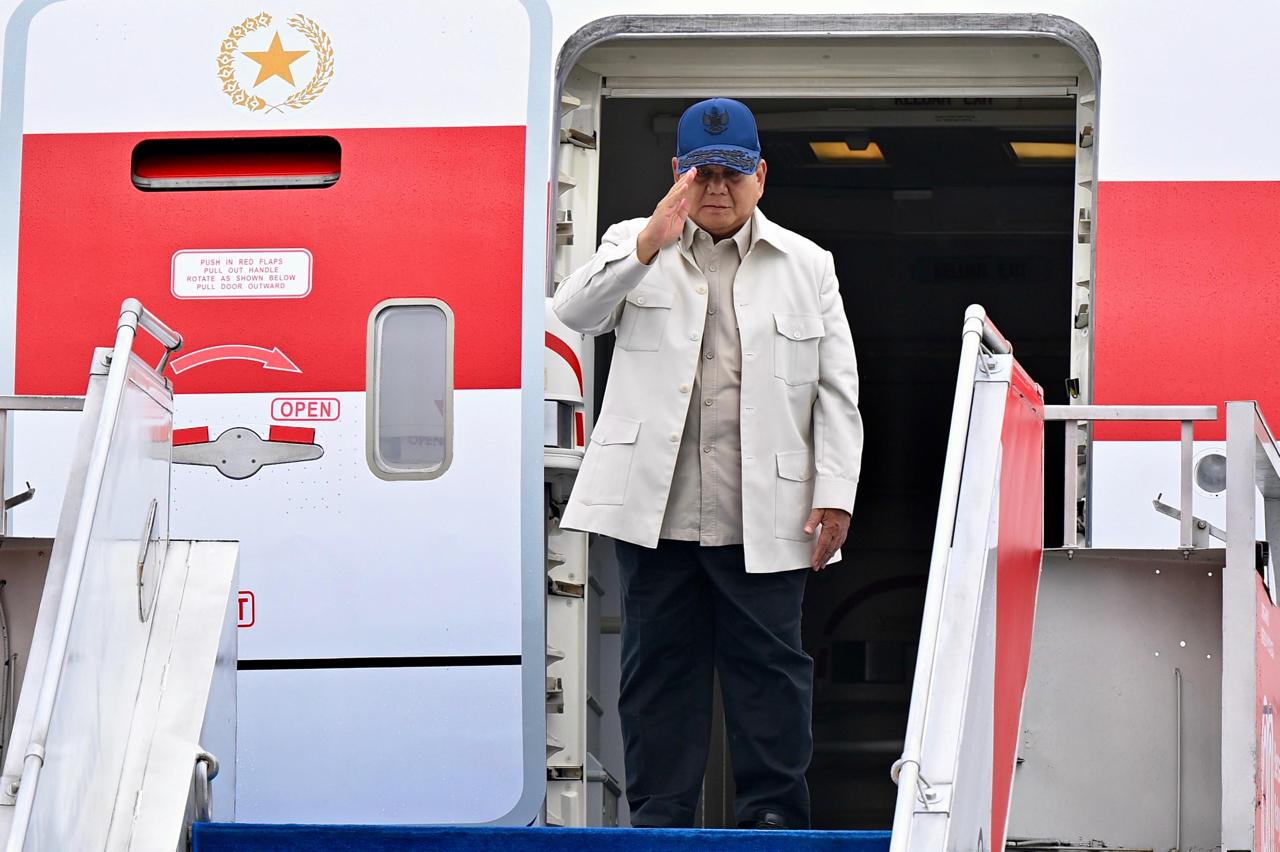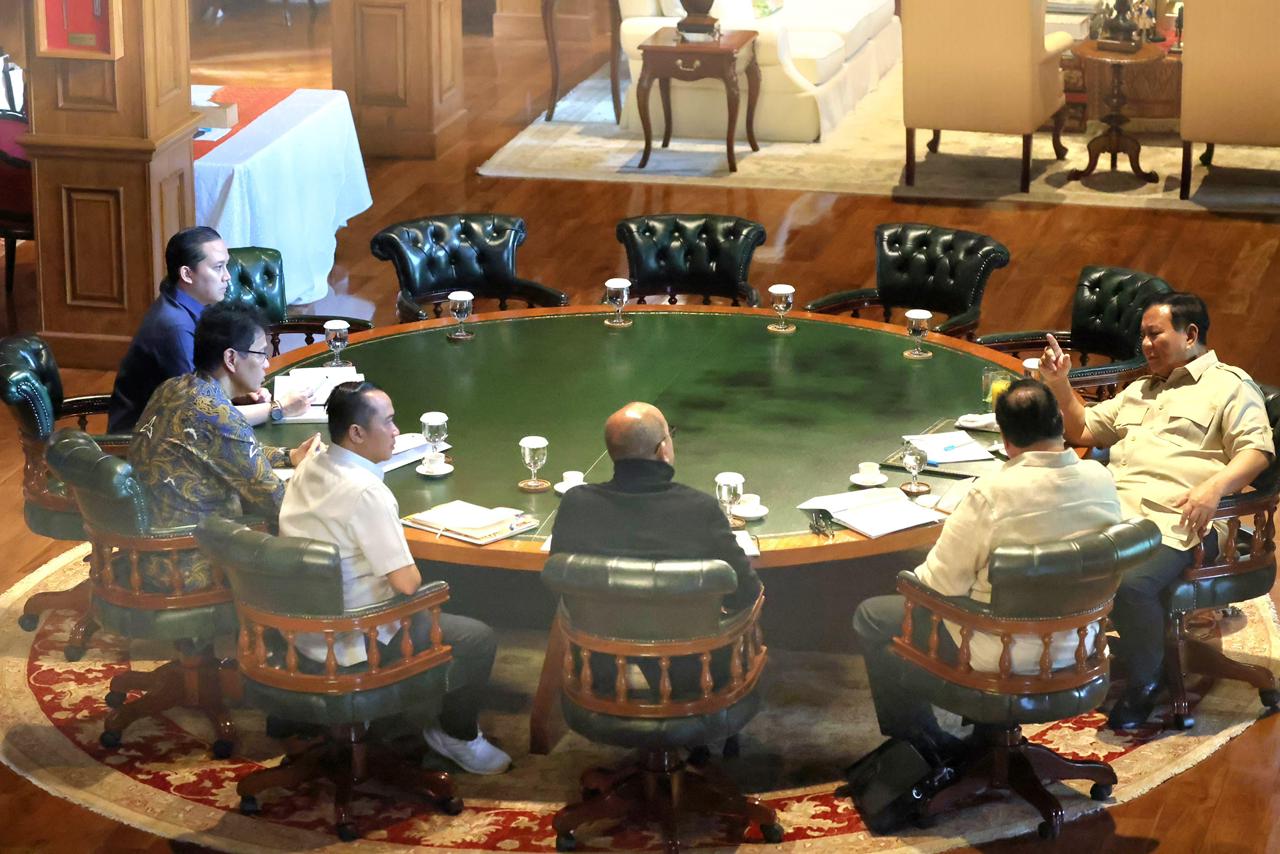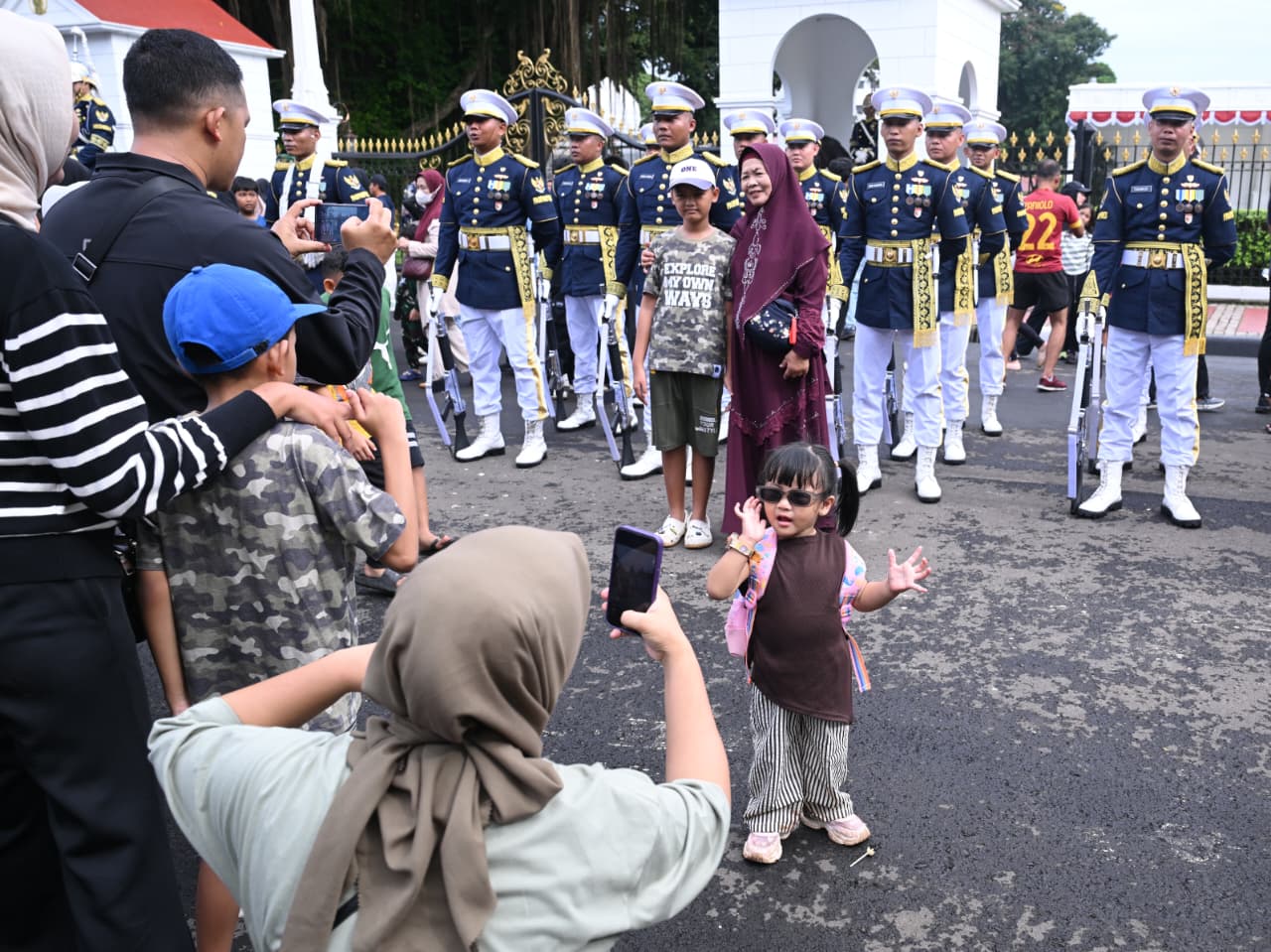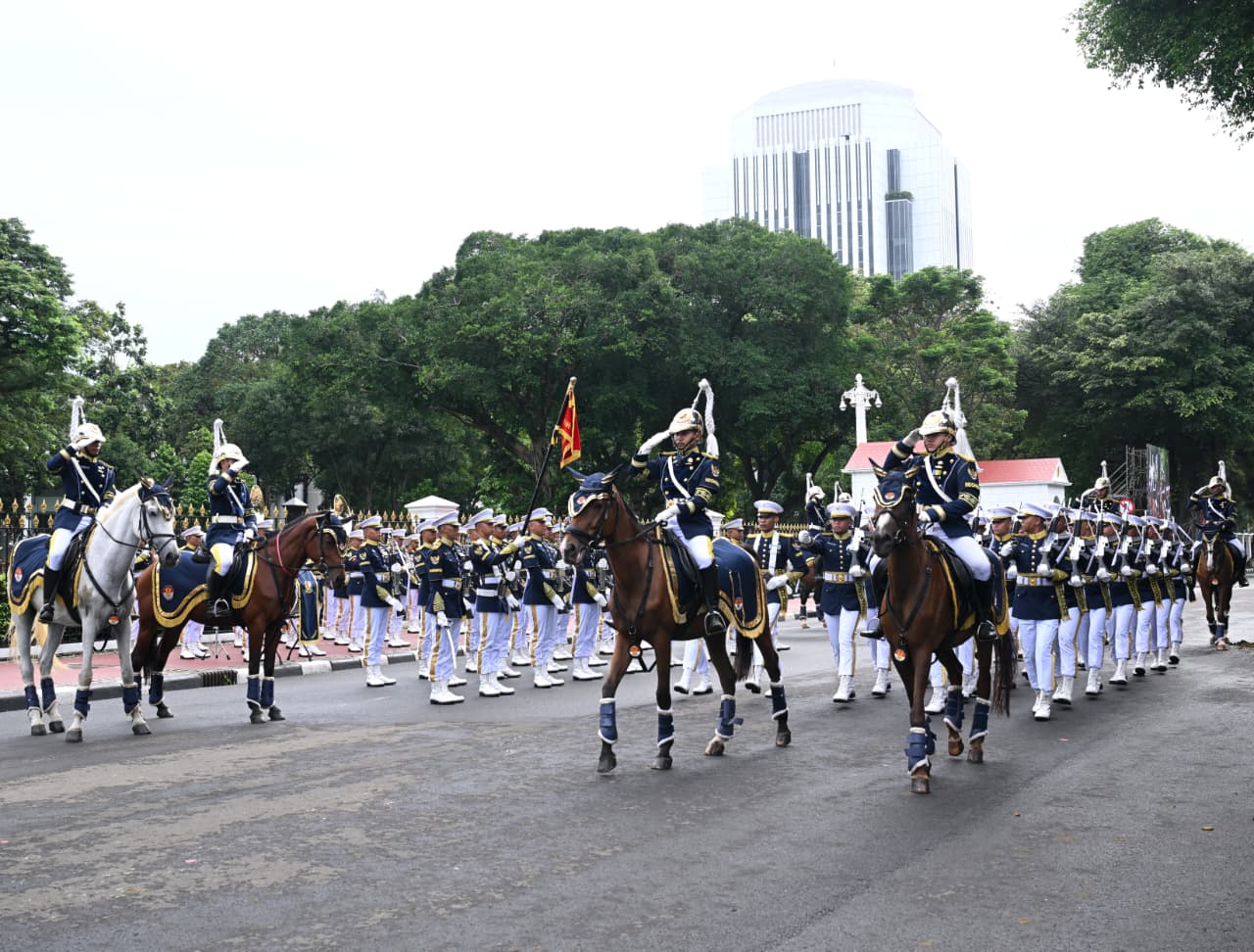Gov’t to Realize Budget Absorption for National Economic Recovery
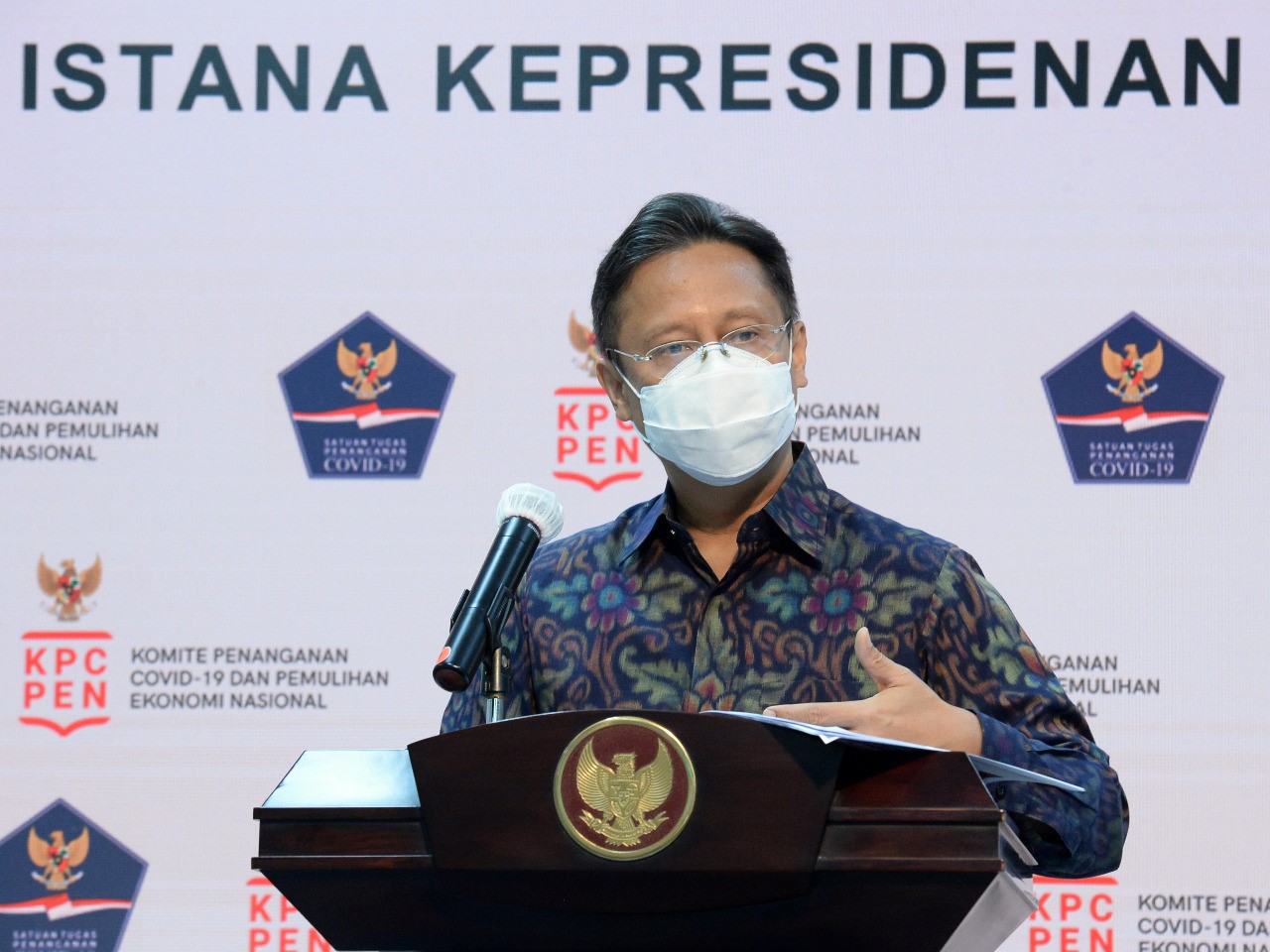
Chief of the National Economic Recovery and Transformation Task Force Budi Gunadi Sadikin attends a press conference with foreign media at the Presidential Office, Jakarta, Wednesday (2/9). (Photo by: BPMI)
In a bid to drive the country’s economy, the National Economic Recovery and Transformation Task Force (PEN) has announced it will realize the absorption target of the national economic recovery budget by the end of this year.
Chief of the National Economic Recovery and Transformation Task Force Budi Gunadi Sadikin, during a press conference with foreign media at the Presidential Office, Jakarta, Wednesday (2/9), stated that a total budget of Rp695 trillion will be allocated for the six programs of COVID-19 Handling and National Economic Recovery (KPCPEN).
There are six main priority programs, including health sector, social protection, MSMEs, business incentives, programs of ministries, institutions, and local governments, as well as programs to assist the finance of corporations during the pandemic. The last four programs will be the responsibility of the PEN Task Force with an allocated budget of around Rp400 trillion with the realization as of this September reaches Rp200 trillion.
“We will ensure that the people at the grassroots level will receive the assistance amid this difficult time through social protection program. We will also focus on MSMEs, considering that it can provide job opportunities for more than 90 percent of Indonesian citizen, it can also contributes more than 55 percent for the national economy,” Budi said.
For social protection program, the Government has provided a budget of Rp204.95 trillion, and Rp101.06 trillion has been absorbed or 49.31 percent of the total budget. In the MSMEs sector, a budget of Rp123.46 trillion will be disbursed and Rp52.03 trillion has been absorbed or 42.14 percent of the total budget.
For programs in ministries, institutions, and local governments, the Government has provided a budget of Rp106.5 trillion, and Rp14.92 trillion has been absorbed or 14.06 percent of the total budget. For corporate financing, there is a budget allocation of Rp53.60 trillion.
Regarding the current realization, Budi said that the PEN Task Force should disburse the remaining budget of around Rp218 trillion by the end of this year. He also said that the budget will be properly-channeled to priority programs.
On social protection, Budi said that the Family Hope Program has a budget ceiling of Rp37.4 trillion. The program has helped 10 million families, with the absorption of 71% or Rp26.6 trillion.
“We believe that the realization target of Rp37 trillion can be disbursed by the end of this year. Currently, Rp27 trillion has been disbursed,” he said.
On staple food card program, Budi said the total budget has reached Rp43.6 trillion and the program has helped 20 million families or 62.5 percent of the total budget has been absorbed.
“The budget realization so far has reached Rp27 trillion of the Rp42 trillion budget. We believe it can be realized,” he added.
According to him, there are also several social protection programs that need to be realized, namely the village direct cash assistance program with a budget of Rp31.8 trillion. The budget realization was only Rp10 trillion or 30 percent of the total budget ceiling, adding that the target recipient is 11 million families and the distribution has continued to increase by 10 percent since the program was launched in July.
“After a comprehensive discussion, we need to adjust the budget distribution method. Instead of handing over the money directly to the poor in the village, for which they may have received assistance from other similar programs, we can distribute the assistance in the form of other programs intended for villages,” Budi stated.
Regarding the MSMEs sector, he continued, the budget of Rp35 trillion has been provided for the MSMEs interest subsidy program. Meanwhile, the realization has only reached Rp3 trillion or 7.20 percent of the total budget. However, it has helped 7.8 million MSME actors for a total loan value of Rp317 trillion.
“We noticed that the total of budget allocation is quite large. Thus, we will readjust the amount and divert part of the budget to other productive programs related to MSMEs,” Budi said.
In addition, there is a new additional program launched by the President. First, it is targeting the micro business sector, namely Productive Presidential Assistance with a Budget Implementation Lists (DIPA) of Rp22 trillion and a target of 9.1 million micro business actors. The current realization has reached 31.79 percent.
“We are proud to announce that the program has absorbed Rp27 trillion within two weeks since it was launched. We will realize the target in this September and accelerate the distribution,” he said.
Regarding the salary subsidy for company employees registered in the Social Security Provider Body for Employment (BPJS Ketenagakerjaan) or BPJamsostek, the Government has provided a budget of Rp37.8 trillion with a target of 15.72 million workers, with the projected absorption in September reaches Rp19 trillion or 7.9 percent of the total budget.
“The President has repeatedly reminded us to strive for the best in this (third) quarter in order to boost economic growth,” Budi said.
On that occasion, Budi said that Indonesia’s Gross Domestic Product (GDP) has reached US$1 trillion or around Rp14,500 trillion. If the total amount divided by 4, then each quarter has reached Rp3,600 trillion, adding that there was a negative growth to minus 5 percent in the last quarter.
“If 5 percent of Rp3,600 trillion is around Rp180 trillion, it will cover the minus 5 percent of the country’s GDP growth once the budget distributed to the people as much as Rp180 trillion per quarter,” he said. (Communication Team of the COVID-19 Handling Committee and PEN / EN)
Translated by: Syarifah Aisyah
Reviewed by: Yuyu Mulyani





